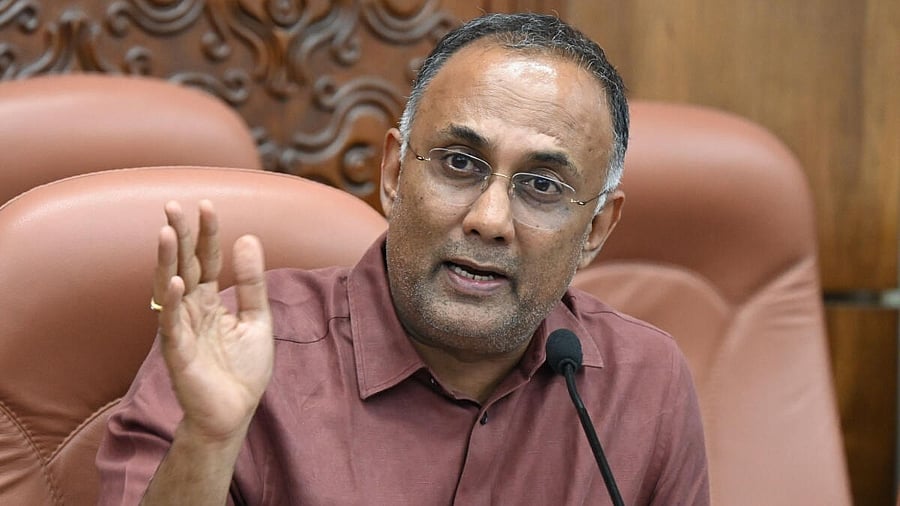
Karnataka Health Minister Dinesh Gundu Rao.
Credit: DH Photo
The recent maternal deaths in Karnataka’s government hospitals have exposed the glaring gaps in the state’s healthcare and pharmaceutical regulatory systems. Health Minister Dinesh Gundu Rao’s admissions in the legislative council have shed light on several pressing concerns including substandard drugs, weak drug laws and lacunas in testing. Ultimately, vulnerable women pay the price. One disturbing revelation was Rao’s mention of drug companies exploiting legal loopholes to escape accountability, For instance, a West Bengal-based company, blacklisted for supplying drugs linked to the death of lactating mothers, was able to obtain a court stay, despite the harmful impact of its products. Furthermore, samples from the company were cleared by laboratories affiliated with the National Accreditation Board for Testing and Calibration Laboratories (NABL), casting doubt on the efficacy of the national testing bodies. A joint investigation by the central, state and West Bengal authorities found that the company had violated manufacturing norms. Rao also stated that some companies supply higher-quality drugs to the international market, while selling substandard products locally, exacerbating health risks faced by Indian patients.
This failure to regulate the pharmaceutical sector has persisted across governments. The Comptroller and Auditor General of India (CAG) had flagged substandard drugs supplied to government hospitals even during the BJP’s tenure. Despite this, bureaucratic inertia allowed such practices to continue unchecked. A judicial commission’s findings of corruption at every stage of Covid-related procurement by the previous government underscores the seriousness of the issue. The BJP thus cannot take a moral high ground on the matter.
The Centre bears significant responsibility for ensuring the quality of drugs supplied to states, particularly since most pharmaceutical companies operate outside Karnataka’s jurisdiction. The Central Drugs Standard Control Organisation (CDSCO) must take a more proactive role in guaranteeing the supply of quality drugs to the states. The current regulatory framework has failed and urgent multi-level action is needed. Karnataka should invest in strengthening its drug-testing infrastructure, ensuring more rigorous checks on the quality of medicines before they reach public hospitals. The government should also file FIRs against the promoters of companies found guilty of malpractice. Courts, on their part, should be more cautious when granting stays in favour of companies accused of supplying substandard drugs, as lives are at stake. The tragic deaths of mothers should serve as a wake-up call. This is not just a Karnataka problem, but a national crisis. To prevent further tragedies, stronger laws, better enforcement, and accountability in the pharmaceutical sector are urgently needed.
